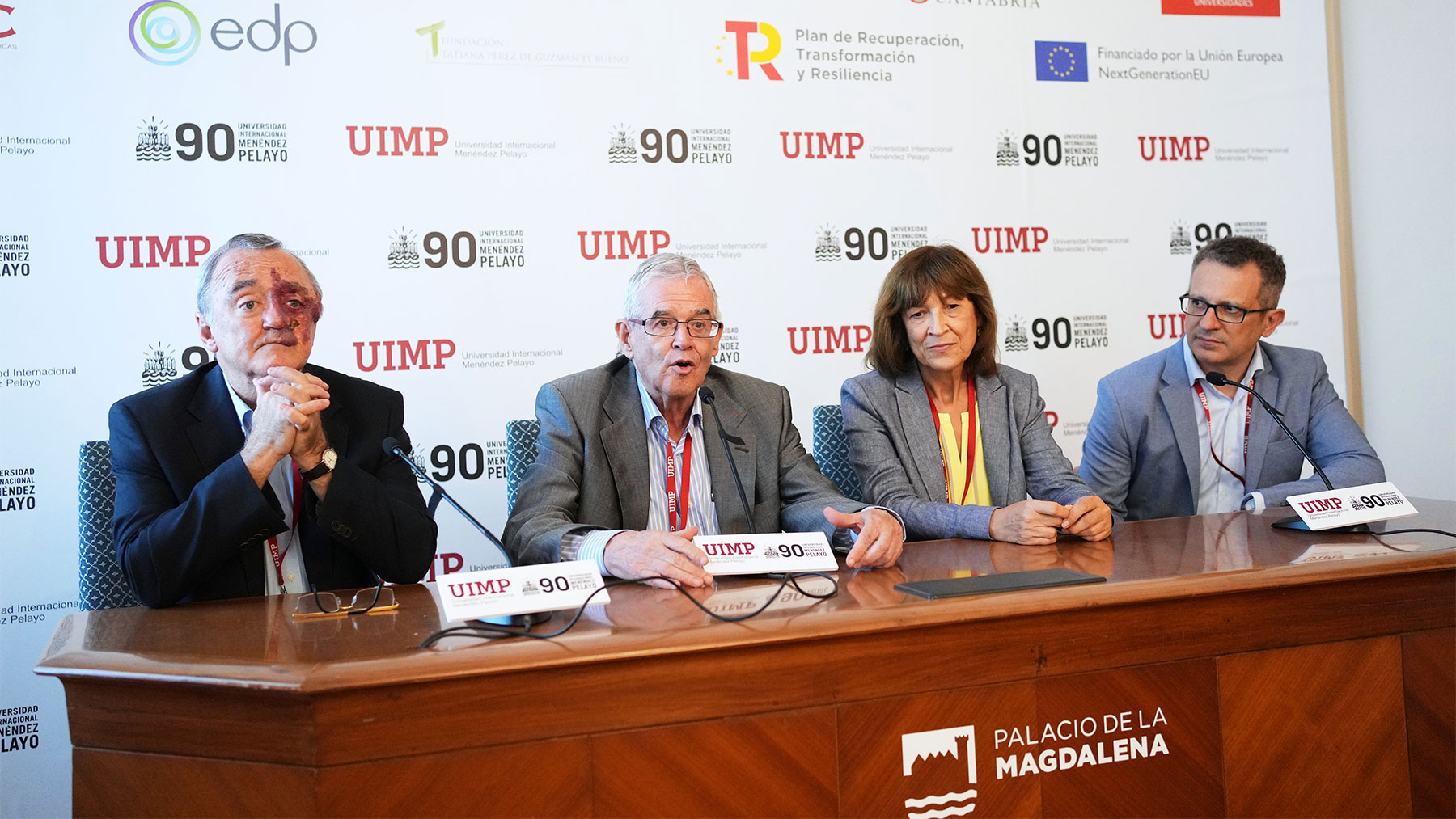In a press conference with Jesus Avila de Grado y Ana Maria Mata Duran, course directors and Juan Méndezthe biochemical of CNIO who in 1982 discovered the molecular basis of cancer through the isolation of a cancer gene in a human tumor, Mariano Barbacid He has spoken about the importance of vaccines to stop covid, the difficulty in developing drugs that act against cancer and the harshness to which pancreatic cancer patients are exposed, one of the most difficult to cure.
The development of vaccines in less than a year has been an advance in science, says Barbacid, who reminds governments and politicians that “don’t forget the value of science, because without it, we would still be having a pandemic without vaccines.” ».
Today “we have the same incidence of infections as almost at the beginning of the pandemic, but now, with some exceptions, people are not dying as they died the first year and that is possible thanks to vaccines and vaccines only they have come from the hand of science”, he declared.
“The pandemic has helped a lot to develop RNA vaccines,” comments Barbacid, however, he assures that “at the moment, there is no relationship” between the development of covid vaccines and cancer: “Anything that is new knowledge has the possibility to be applied, but concretely I am not aware of any direct advance, as a direct consequence of the development of these new RNA molecules».
The greater the longevity, the higher the prevalence of cancer
The number of cancer case detections has increased considerably in recent years. Juan Méndez, CNIO researcher and head of the DNA Replication Group of the Molecular Oncology program explains that “one of the reasons why there is a social perception that there are more cancer cases now is because, in general, we live longer and there is a very clear correlation between age and the probability of developing cancer”.
“As life expectancy has been increasing and as it is a very large group of diseases, in which the vast majority of them are directly related to the time we are alive, the frequency increases” with which they are expanding Mendez explains.
Likewise, Barbacid adds that “in Sub-Saharan Africa there is very little cancer but obviously we would not want our life expectancy to be 47 years instead of 85 or more.”
Each tumor is a world
“There are more than 100 types of tumors and each one has its own idiosyncrasies,” comments the expert in molecular oncology, and in this sense comments that “nanomedicine is nothing more than a vehicle for delivering drugs to the tumor, that is, nanoparticles, what is clearly needed is to have a drug that is effective against the mutation or mutations responsible for each particular tumour».
For this reason, he indicates that the key is “advancing in designing effective drugs, in designing pharmacological strategies that make these drugs more effective” since “all of this obviously results in a better response in patients.” Barbacid warns that it cannot be thought that all types of cancer are going to advance at the same time, but that “each type of cancer will advance to a different progression depending on the discoveries that are made: Cancer is going to go little by little And it’s going to move at different speeds.”
At this point, he has compared the well-known advances in breast, lung, immunotherapy or prostate cancer with pancreatic cancer “which has practically not advanced.”
The laboratory in which the prestigious biochemist works is dedicated to investigating this type of tumor, one of the most difficult to treat: “The problem is that it has not been possible to develop drugs against the mutated proteins that cause the mutation process” of this type of cancer since it has “many peculiarities” that cause it to be “so harmful”.
The gene that initiates pancreatic cancer is the KRAS gene (an oncogene discovered by this well-known Spanish researcher in 1982). Forty years later, no drug has been developed against this oncogene, he laments.
The biochemist explains that pancreatic cancer is already the third with the highest mortality rate, surpassing breast cancer “despite the huge difference in incidence”. While “95% of breast cancer is cured” that of the pancreas is cured “by 5%”, he points out and emphasizes the lack of “effective drugs”.
Even so, remember that pancreatic cancer “has hundreds of mutations” and therefore “it would be too naive to think that by blocking one of them, we are going to be able to cure a tumor” because we do not take into account that “a tumor is the result of many mutations is not just the result of one.
The researcher and biochemist Mariano Barbacid confirms that research in this field is still active and, although he cannot say when the solution will arrive, he does recall that “if we do not investigate we will not arrive”.
–


